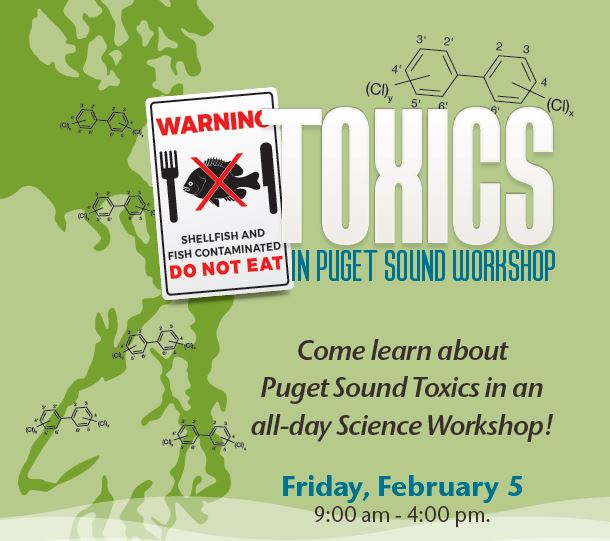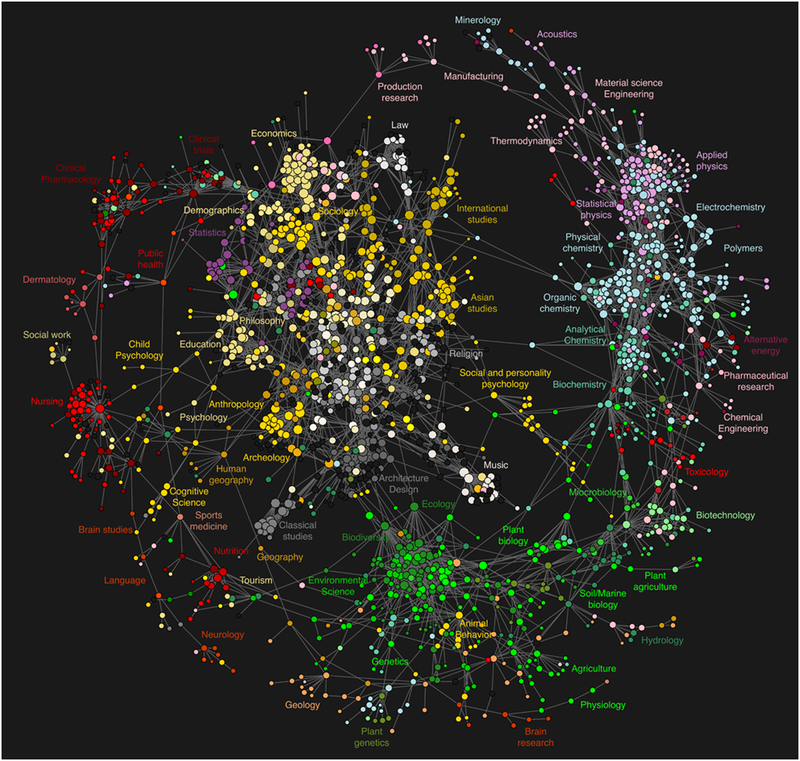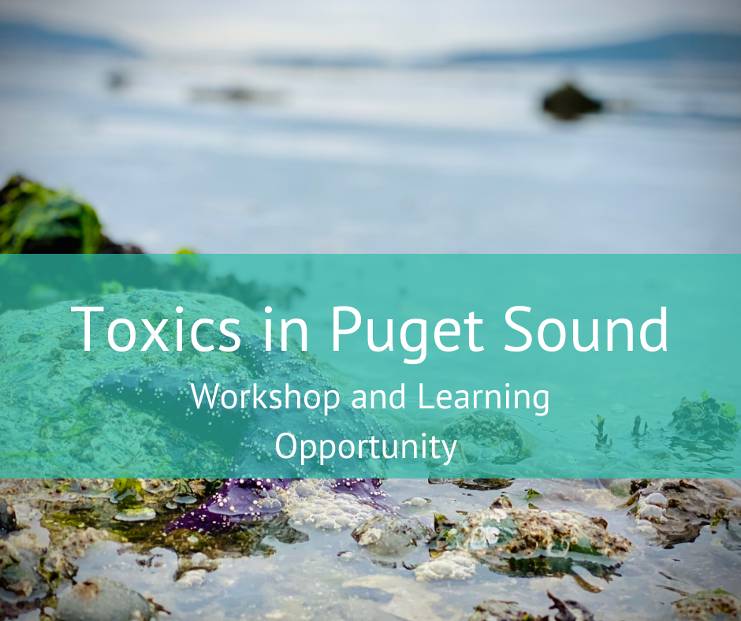This post has an update! Check out the follow-up and Q&A document on this post.
Please join the Stormwater Strategic Initiative Lead Team (Stormwater SIL) and a host of fabulous and insightful speakers from 9am-4:30pm on Friday, February 5th to hear updates about toxics monitoring, research and emerging science in Puget Sound.
The February 5th Workshop day will focus on science only and will address PCBs, PAHs, PBDEs and CECs, among other toxic chemicals. We will be emphasizing emerging science and the discussion will address sources, pathways and impacts. The red flags raised by the science will set the stage for follow up action by agencies and collaborators.

Who is the workshop designed for?
The workshop is designed for contaminant scientists, members of the monitoring community, city and county managers, watershed groups, non-profits and anyone who is interested in the impacts of toxics on Puget Sound as a community.
You will learn about sources, pathways and impacts of a range of toxics and what it means for critters (biota) and implications for human health. The non-human and human toxics nexus will be addressed more fully in a follow-up February 26th workshop (details and registration will be provided later).
The workshop will feature context for these issues by Molly Jacobs from the Lowell Center for Sustainable Production and Rhonda Kaetzel from the Agency for Toxic Substances and Disease Registry (ATSDR), part of the CDC.

The event is free, but you must register in advance: https://toxicsinpugetsound.brownpapertickets.com
A Zoom link will be shared upon registration and an agenda will be sent the week before.
If you have any questions please contact Heidi Siegelbaum at Heidi.Siegelbaum@wsu.edu.
Many thanks to our standing advisory team (SIAT) and planning team for their contributions. This work is funded by the U.S. Environmental Protection Agency’s National Estuary Program (PC10J18101)

